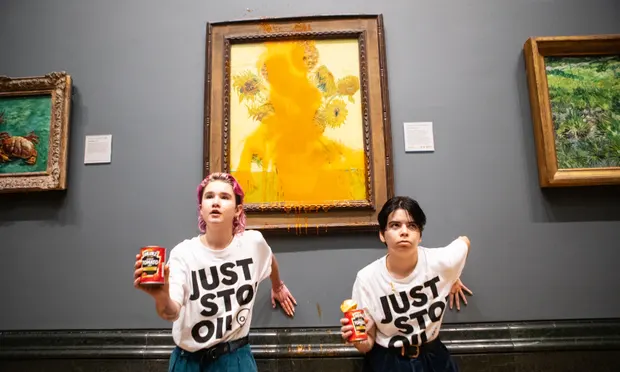Emergency talk
Some people think the rhetoric of climate change is too emotive. But faced with a global catastrophe it would be unwise to tone down our language.
We are all familiar by now with the shrill voices of climate change deniers. But with every passing week they become more and more irrelevant, as their ‘scepticism’ about the reality of man-made climate change is exposed as risible. The issue now is not whether we are certain that dangerous climate change is real and is happening – the issue is only how we are going to tackle it. So how do we motivate people to act? How do we persuade them not to seek refuge in psychological defence mechanisms of the kind Leo Hickman chronicled in the Guardian last week?
As Hickman wrote, one of my colleagues at the University of East Anglia, the eminent climate scientist Professor Mike Hulme, has warned us off using terms such as “catastrophe” in describing the potential impact of global warming. Some have gone further, lambasting the predictions of what will happen if we do not dramatically curb CO2 emissions as “climate porn”.
Now, I agree that it is absolutely not enough to scare people. We need to emphasise that the changes needed to stop manmade climate change are in themselves life-improving. And I agree that we need to ensure that people don’t think that the mountain is too big to climb: people need to be given tools to see that preventing catastrophic climate change is possible. But it is unwise of us to tone down our language. I do not agree that we should leave aside talk of “catastrophe”. In fact, by sticking to talking of “climate change” rather than of “climate chaos” and “potential climate catastrophe”, we end up playing the same game as the more subtle and intelligent of the climate change deniers by adopting their language. That ought to be enough to make anyone stop, think, and question what they are doing.
In his book, Unspeak, the Guardian’s Steven Poole shows how the term “climate change” became the term of choice for the Saudis, for US oil companies and for the Republicans, displacing even the fairly anodyne “global warming”. As the leading Republican pollster Frank Luntz put it in a leaked document:
1) ‘Climate change’ is less frightening than ‘global warming’. As one focus group participant noted, climate change ‘sounds like you’re going from Pittsburgh to Fort Lauderdale’. While global warming has catastrophic connotations attached to it, climate change suggests a more controllable and less emotional challenge.
A less emotional challenge … but shouldn’t we be willing to get a little “emotional” over the potential destruction of our entire future as a civilisation? Frank Luntz wants us to stay coolheaded over “climate change” – a goal he shares with Mike Hulme. I believe that people ought to be scared and angry and itching to do something about it. How might the total destruction of human civilisation outside a few outposts in Antarctica not constitute a “catastrophe”? Several billion deaths: since when is that not catastrophic? This is the scenario that the government’s chief scientist, Anthony King, described as a factually likely outcome, if no effective action is taken to prevent global overheating.
This is not crying wolf. It is simply telling the truth. Runaway climate change could, within a century or so, collapse civilisation on lifeboat Earth entirely, just as (for example) civilisation and population levels on Easter Island collapsed over a much shorter period.
So my linguistic proposal is pretty straightforward. “Climate change” is an Orwellian construct, and should be dropped. To use it is to be complicit with the agendas of Exxon and Bush. It is, I believe, still to be in denial. We should speak honestly of “climate chaos”, “climate crisis”, “global over-heating”, and the risk of “climate catastrophe”. To do so is to do no more than call attention directly to the utterly drastic consequences of untrammelled consumerism. It is, literally, truth-in-advertising.
Hulme wants to maintain scientific decorum. But it is not the job of climate scientists to tell us how to describe what the human consequences would be of us ignoring their predictions. That is rather the task of artists, activists, politicians and philosophers. It is they who will give us the wake-up call that we still evidently need, if anyone will. Talking about averting “climate catastrophe” is not alarmism. It is simply calling something by its true name.



